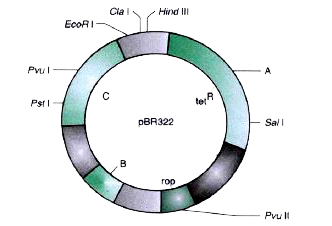Complete Solutions to ILLUSTRATIVE QUESTIONS of chapter REPRODUCTION IN ORGANISMS of Class 12 book with complete answers and questions
| Class 12 | BIOLOGY |
| Chapter | REPRODUCTION IN ORGANISMS |
| SRIJAN | ILLUSTRATIVE QUESTIONS |
| Number Of Questions | 40 |
| Academic Year | 2023-24 |
Define reparative regeneration with examples.
View SolutionWhat is the significance of cyst formation in Amoeba?
View SolutionWhat is the practical significance of vegetative propagation?
View SolutionWhy is sexual reproduction known as germinal reproduction?
View SolutionDefine hermaphrodite organisms.
View SolutionWhat is that phenomenon in which larva develops gonads and starts reproducing without undergoing metamorphosis? Give some examples.
View SolutionWhat is another term used for regeneration?
View SolutionName the microorganisms found in bacteria , protozoans and unicellular algae.
View SolutionWhat is a spore? Why is multiple fission in Amoeba called sporulation?
View SolutionWhat is the difference between pollination and fertilisation?
View SolutionWhich group of plant kingdom is known to reproduce by spores?
View SolutionWhat are pseudopodispores in Amoeba?
View SolutionWhat is rhizome?
View SolutionWhich rooting hormones are used while planting stem cuttings for vegetative propagation?
View SolutionName four ornamental plants which gardner multiplies from stem cutting.
View SolutionWhat is the difference between dioecious and hermaphrodite?
View SolutionWhy is reproduction essential for organisms?
View SolutionWhich is a better mode of reproduction - sexual or asexual? Why?
View SolutionWhy are the offspring formed by asexual reproduction referred to as a clone?
View SolutionOffspring formed by sexual reproduction have better chances of survival. Why? Is this statement always true?
View SolutionHow does the progeny formed from asexual reproduction differ from that formed by sexual reproduction?
View SolutionHigher organisms have resorted to sexual reproduction in spite of its complexity, why?
View SolutionExplain why meiosis and gametogenesis are always interlinked.
View SolutionFollowing components are haploid, diploid or triploid (A) oosphere (B) microsphere (C ) sunergids (D) antipodals (E ) oospore (F) nucellus (G) placenta (chalaza) (I) endosperm (J) tapetum
Which of following groups show the correct sequence of the ascending order of ploidy in ovule/seed ?
View SolutionDefine external fertilisation. Mention its disadvantages.
View SolutionOffsprings of oviparous animal are at greater risk of survival as compared to those of viviparous animals because
View SolutionWith which type of reproduction do we associate the reduction division? Analyse the reasons for it.
View SolutionIs it possible to consider vegetative propagation observed in certain plants like Bryophyllum, water hyacinth, ginger etc., as a type of asexual reproduction? Give two/three reasons.
View Solution'Fertilisation is not an obligatory event for fruit production in certain plants'. Explain the statement.
View SolutionSuggest a possible explanation why the seeds in a pea pod are arranged in a row, whereas those in tomato are scattered in the juicy pulp.
View SolutionWhat would happen if the disc of starfish is deprived of all its arms and a single arm is cut with a portion of disc?
View SolutionWhy is Amoeba called immortal?
View SolutionWhy do internodal segments of sugarcane fail to propagate vegetatively even when they are in contact with damp soil?
View SolutionWhy is vegetative propagation called a method of asexual multiplication?
View SolutionIn Whiptail lizards, only females are born generation after generation. There are no males. How is this possible?
View SolutionWhy does a gardner apply hormone IAA or NAA before planting rose cuttings?
View SolutionIn sexual reproduction, there is fusion of two nuclei bringing a set of chromosomes each from male and female parents together. Then, how is the number of chromosomes in the offspring same as in parents?
View SolutionCoconut palm is monoecious while date palm is dioecious. Why are they called so?
View SolutionName the regions marked A, B and C.

View SolutionVivipary automatically limits the number of offspring in a litter. How?
View Solution
ILLUSTRATIVE QUESTIONS questions and complete solutions for chapter REPRODUCTION IN ORGANISMS of SRIJAN BIOLOGY (ENGLISH) of Class 12
All Exercises from SRIJAN Class 12 BIOLOGY REPRODUCTION IN ORGANISMS
- COMPETITION CORNER OBJECTIVE TYPE QUESTIONS ((A) Multiple Choice Questions (MCQs) Choose the correct option)
- COMPETITION CORNER OBJECTIVE TYPE QUESTIONS ((B) Assertion and Reason Type Questions) (Fopr AIIMS aspirants)
- ILLUSTRATIVE QUESTIONS
- PRACTICE QUESTIONS (A)(Very Short Answer Type Questions) (1 Marks each)
- PRACTICE QUESTIONS (B)( Short Answer Type Questions) (2 Marks each)
- PRACTICE QUESTIONS (C)( Short Answer Type-II Questions) (3 Marks each)
- PRACTICE QUESTIONS (D)( Long Answer Type Questions) (5 Marks each)
- PREVIOUS YEAR.S BOARD PAPER QUESTIONS (A) ( Very Short Answer Type Questions) (1 mark each)
- PREVIOUS YEAR.S BOARD PAPER QUESTIONS (B) ( Short Answer Type-I Questions) (2 mark each)
- PREVIOUS YEAR.S BOARD PAPER QUESTIONS (C) ( Short Answer Type-II Questions) (3 mark each)
- PREVIOUS YEAR.S BOARD PAPER QUESTIONS (D) ( Long Answer Type Questions) (5 mark each)
- REVIEW QUESTIONS